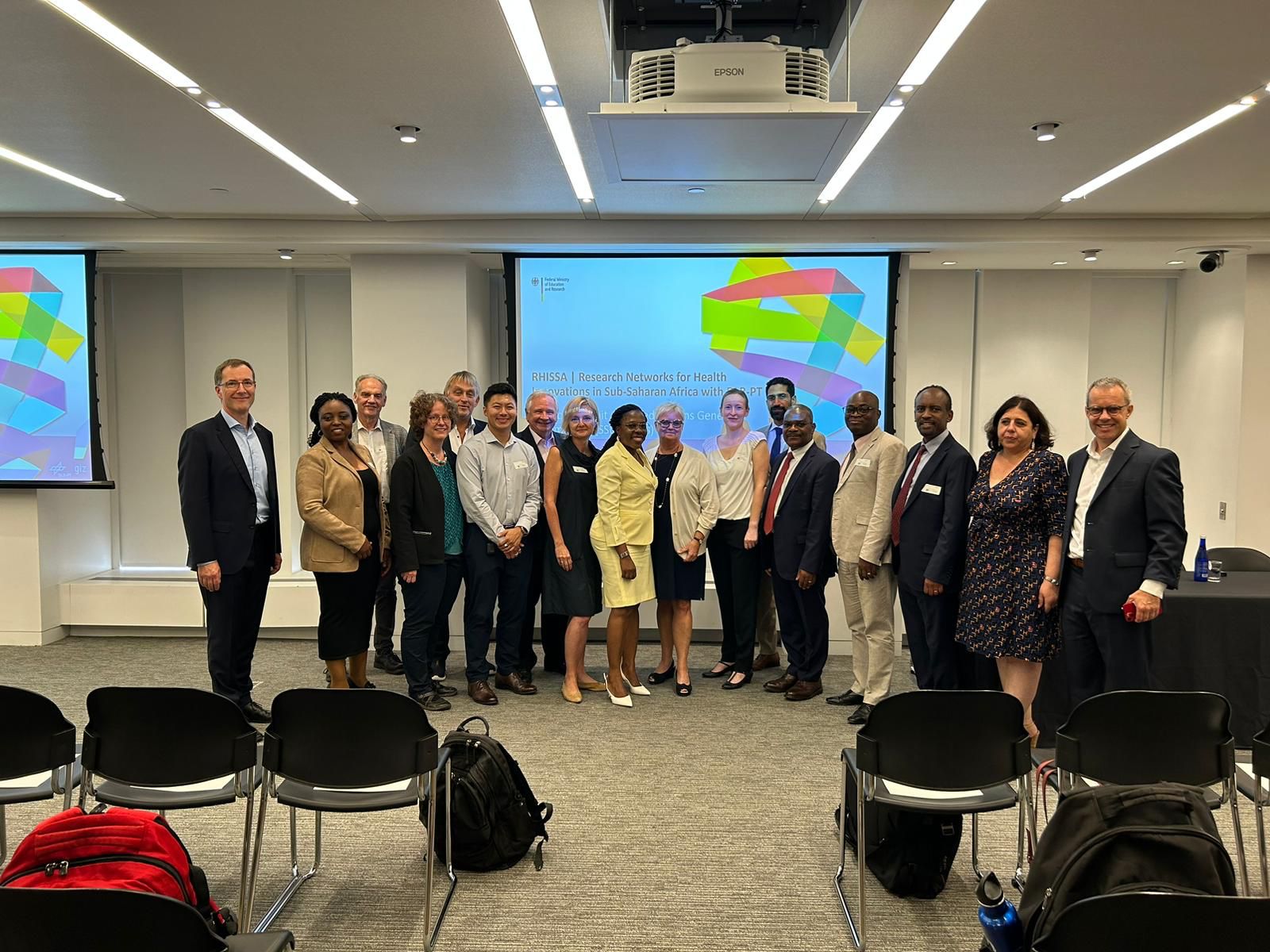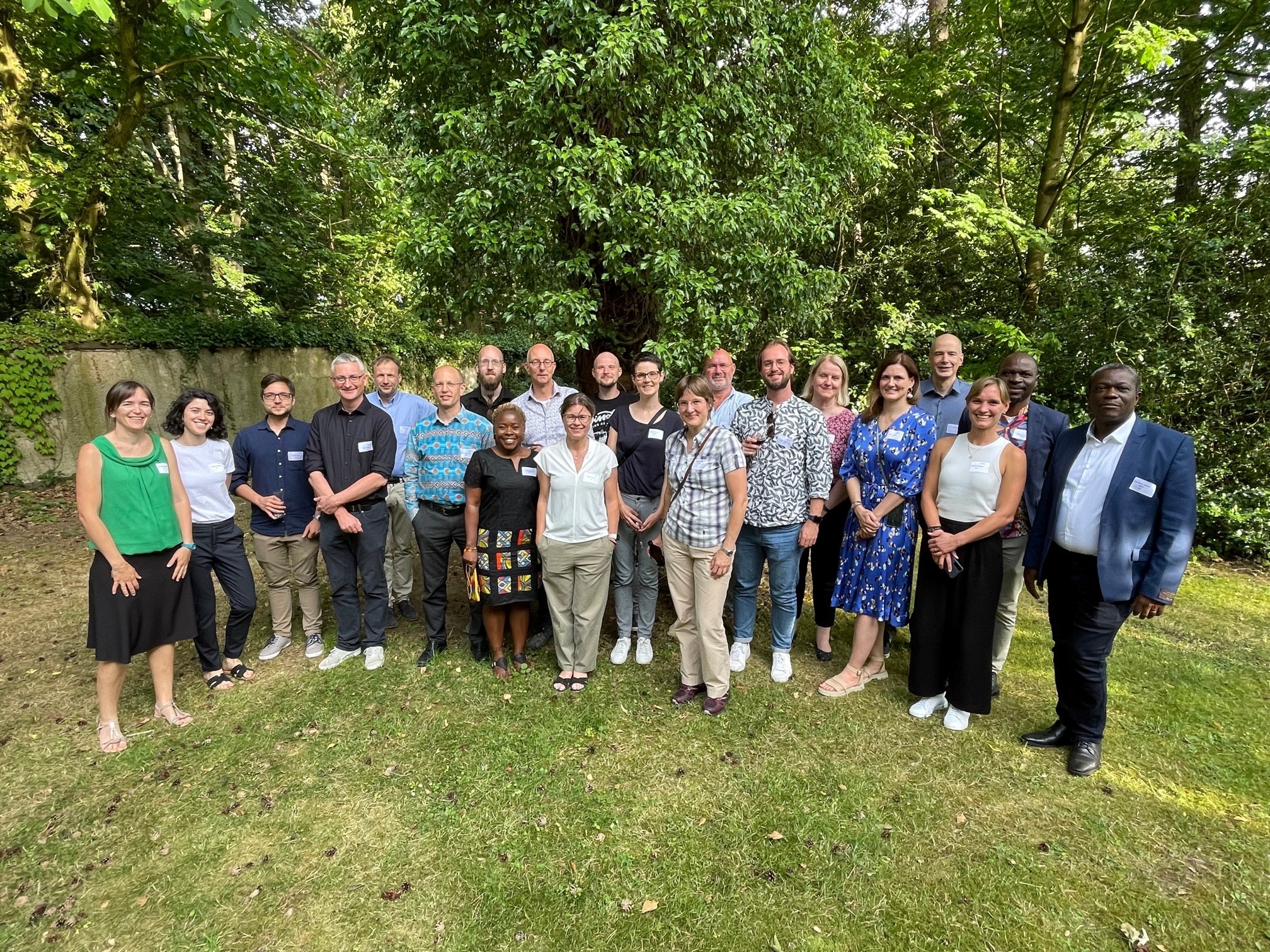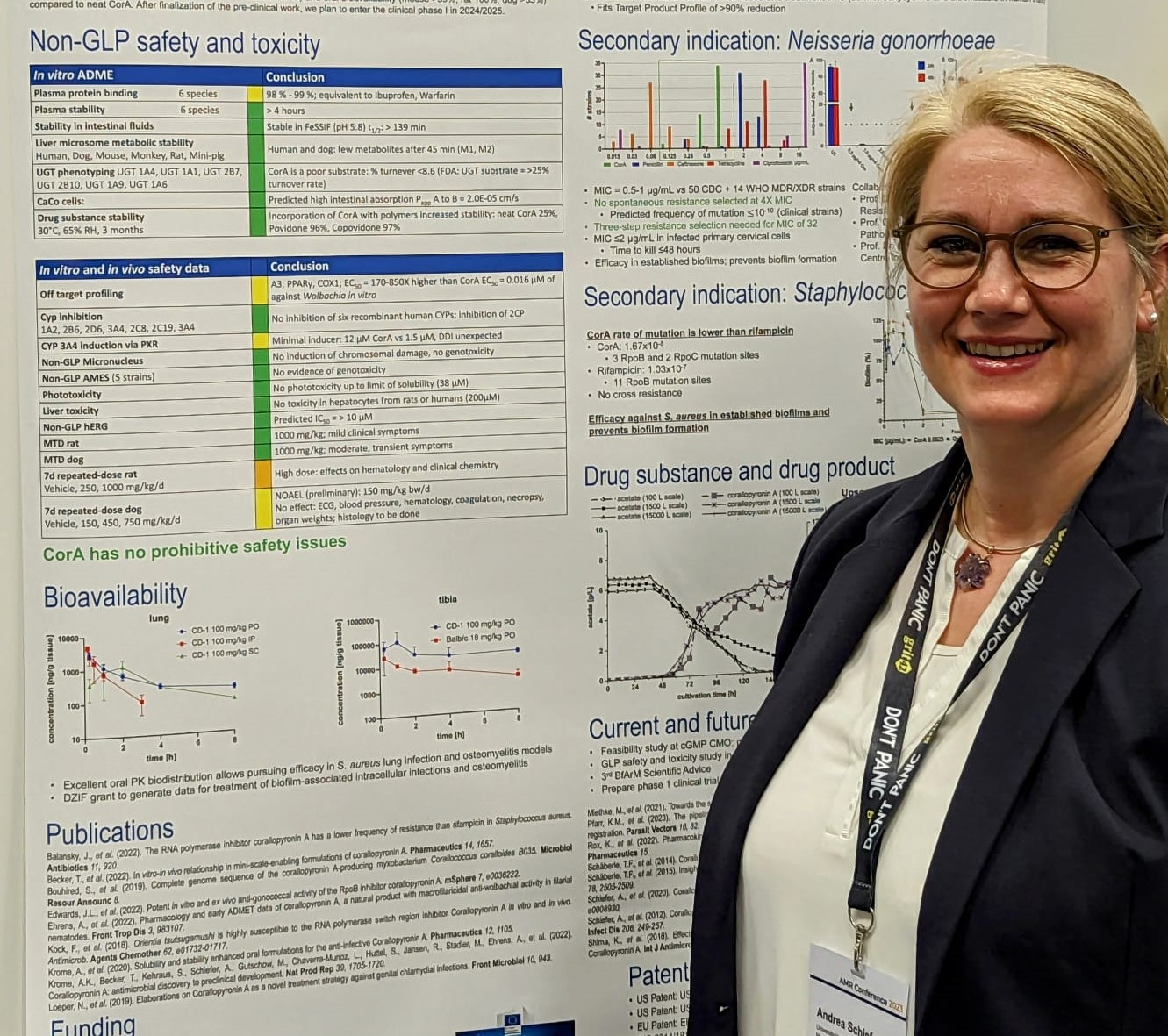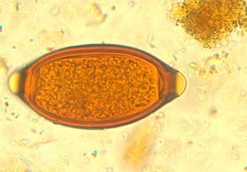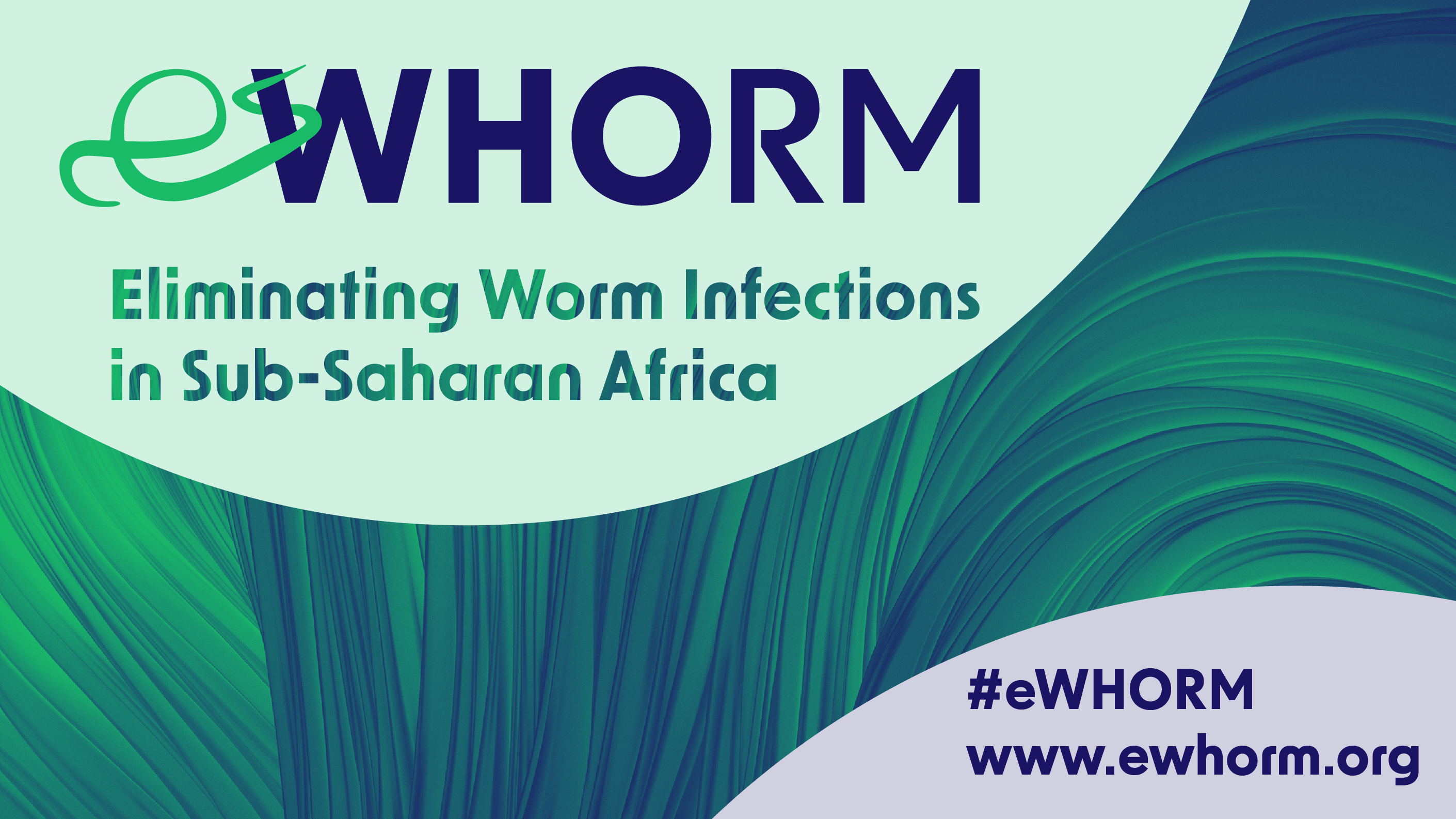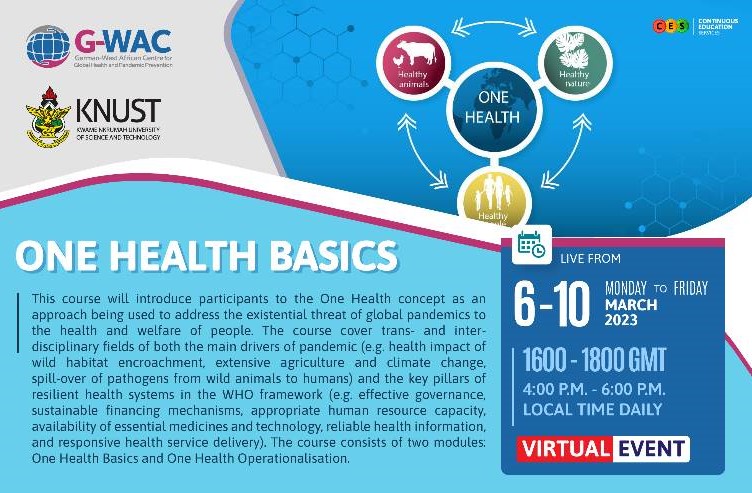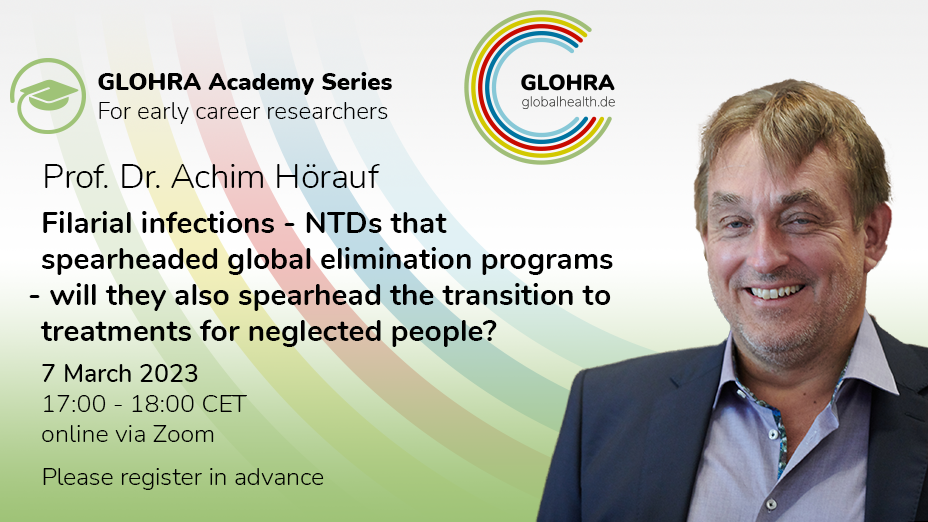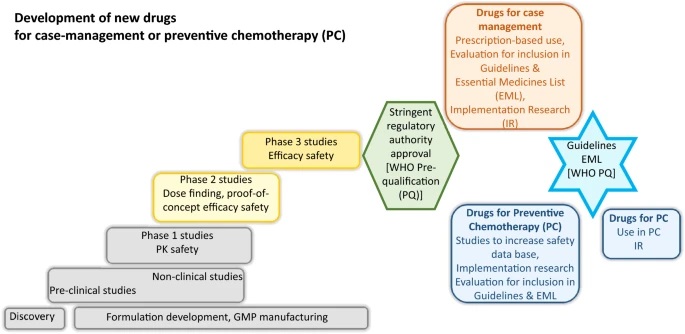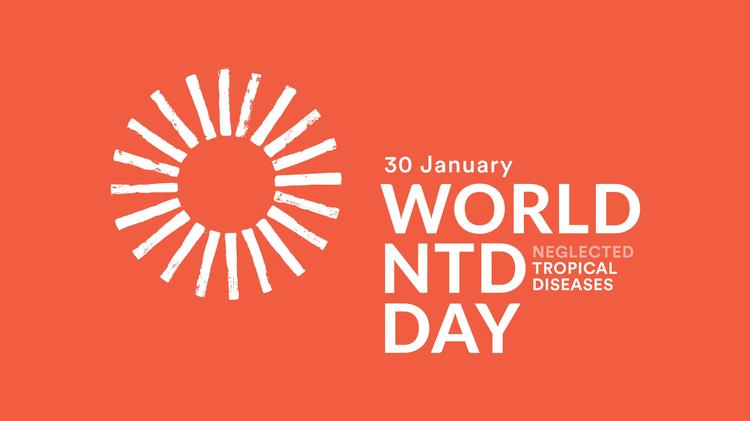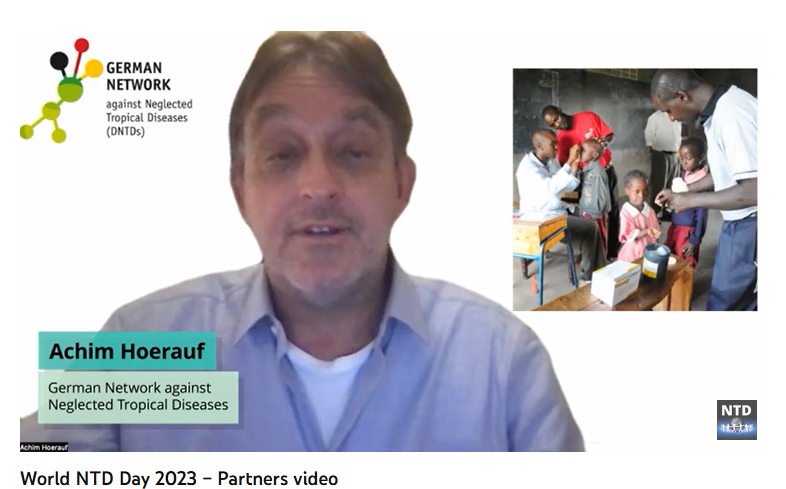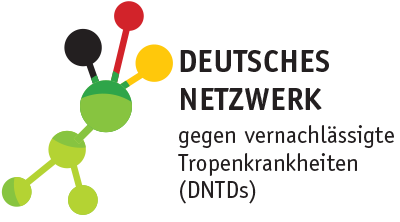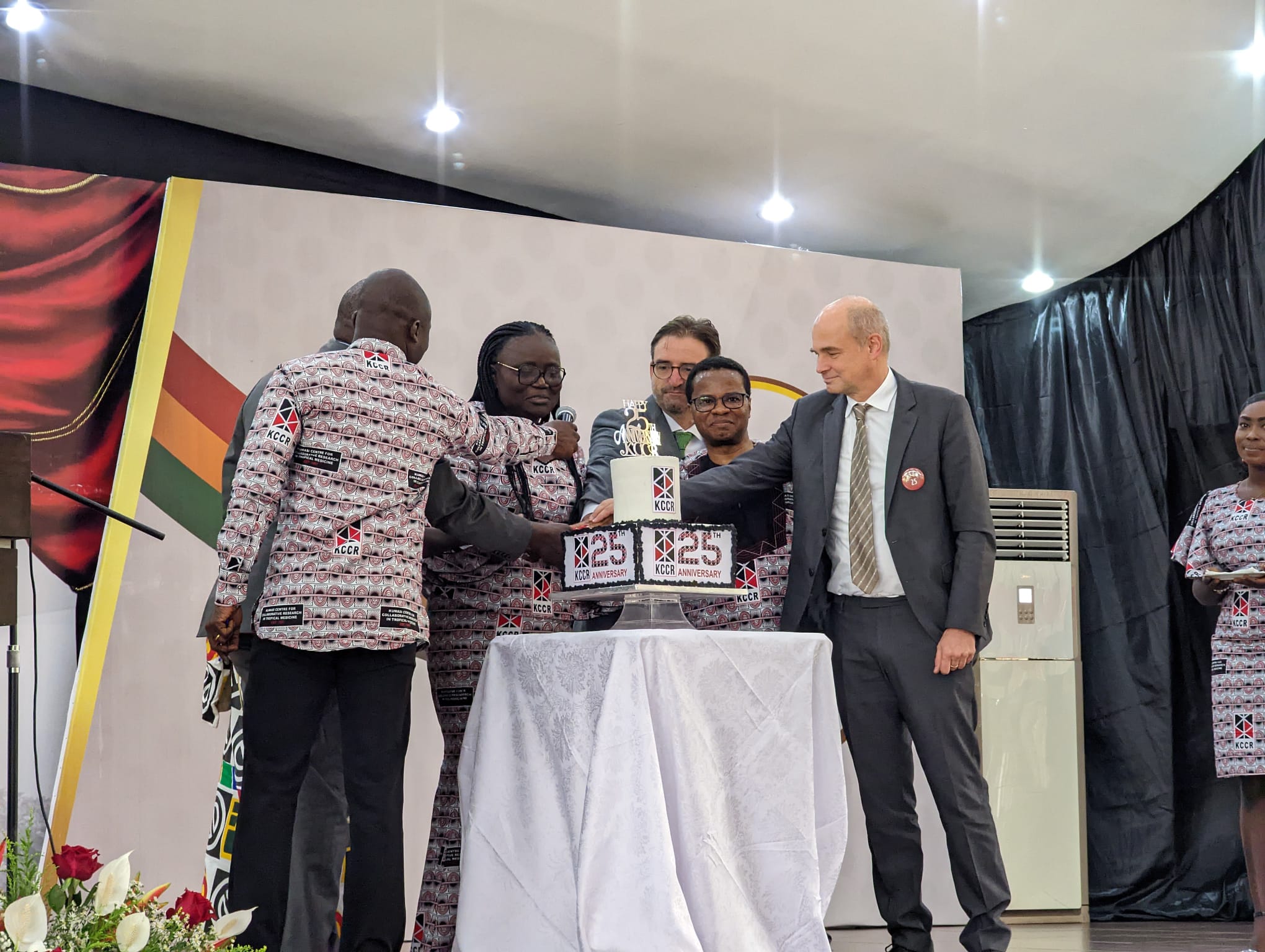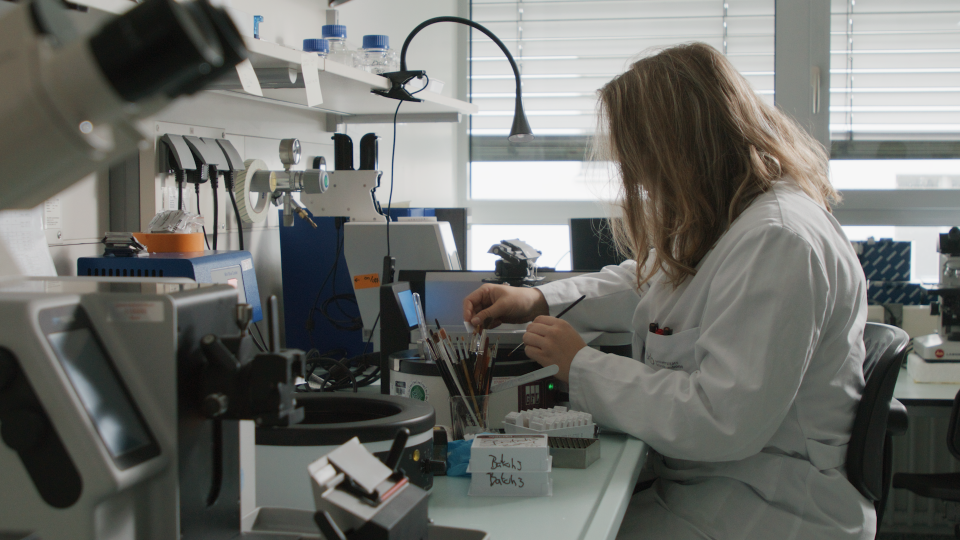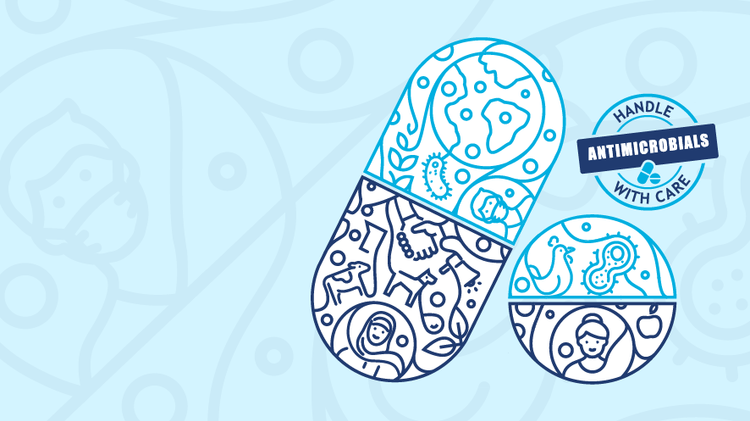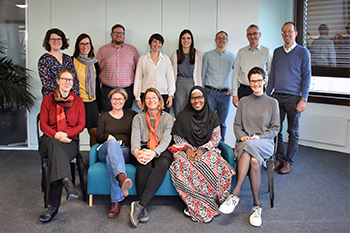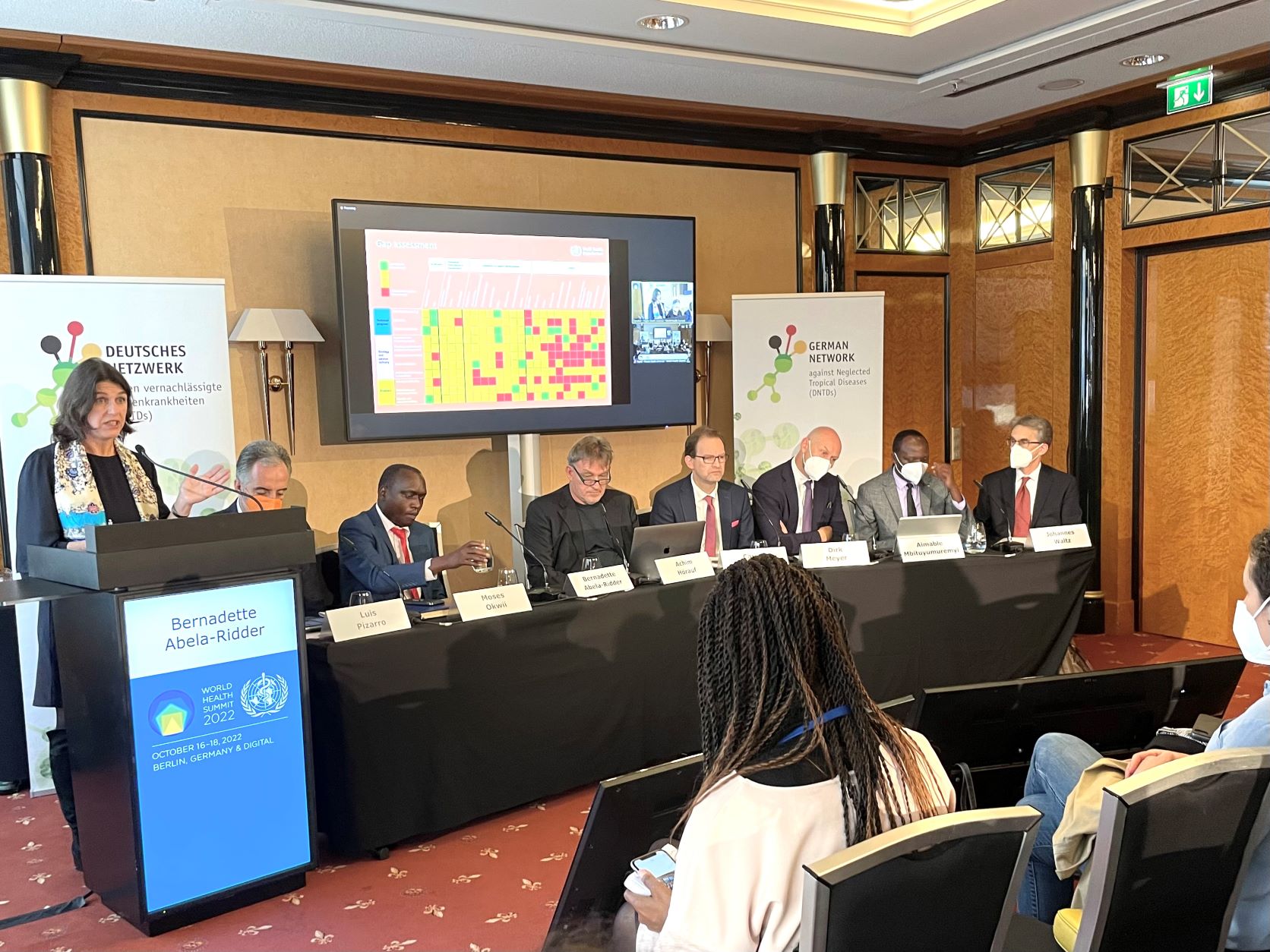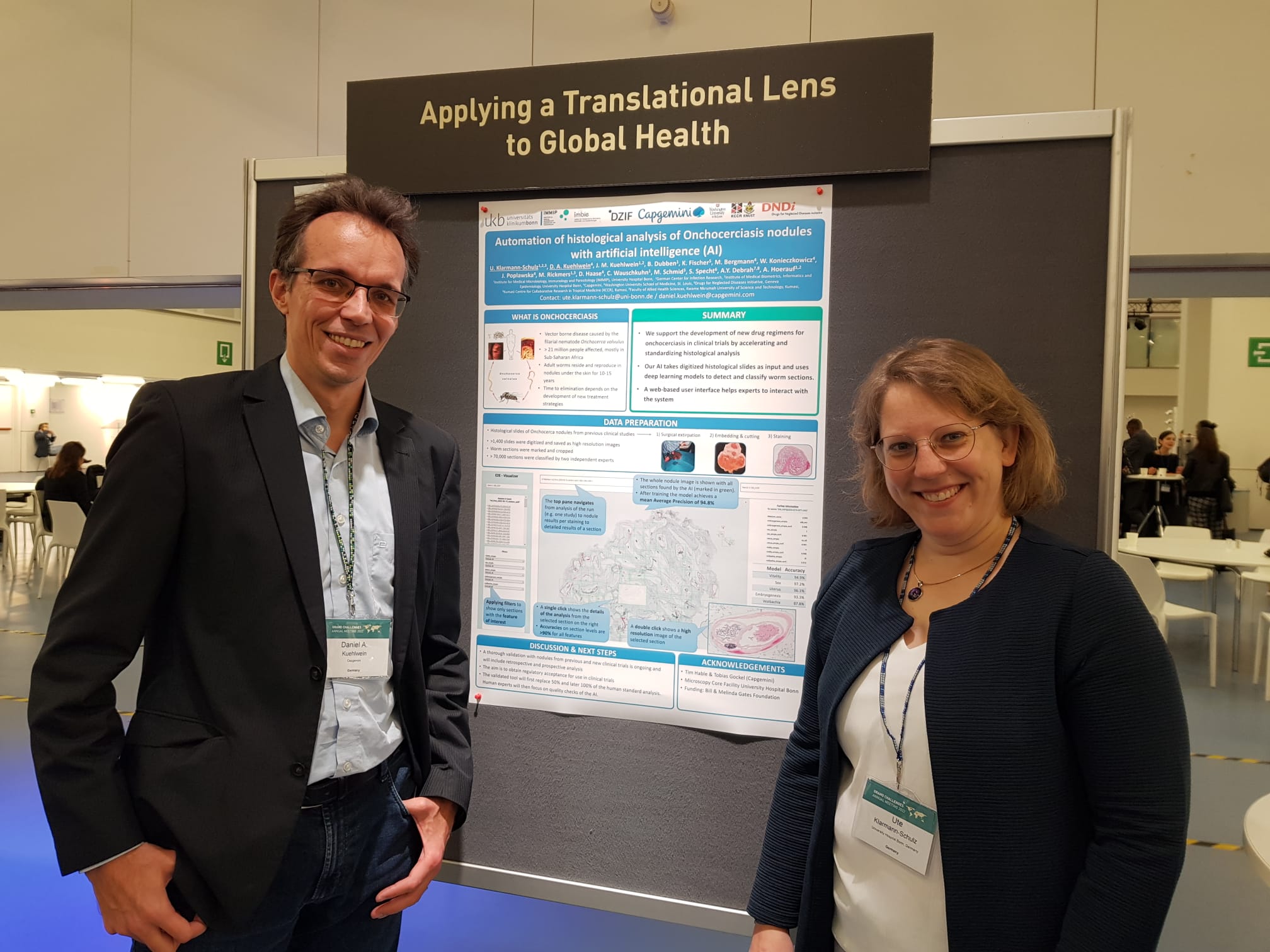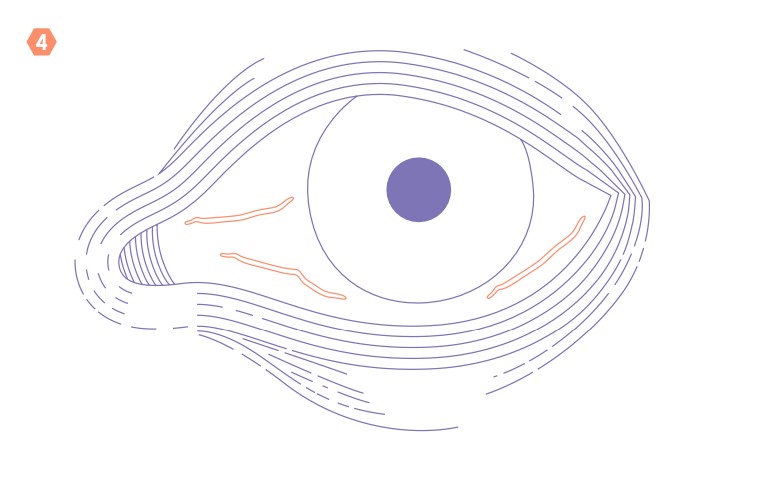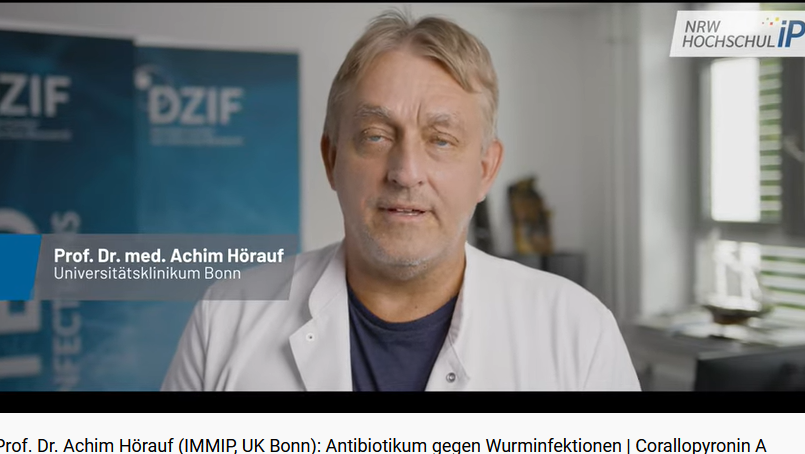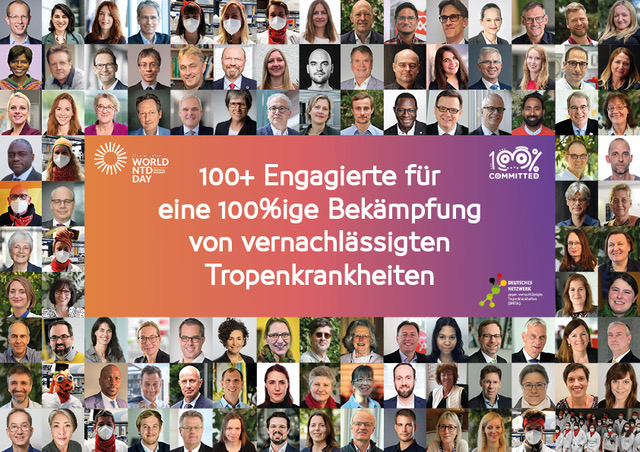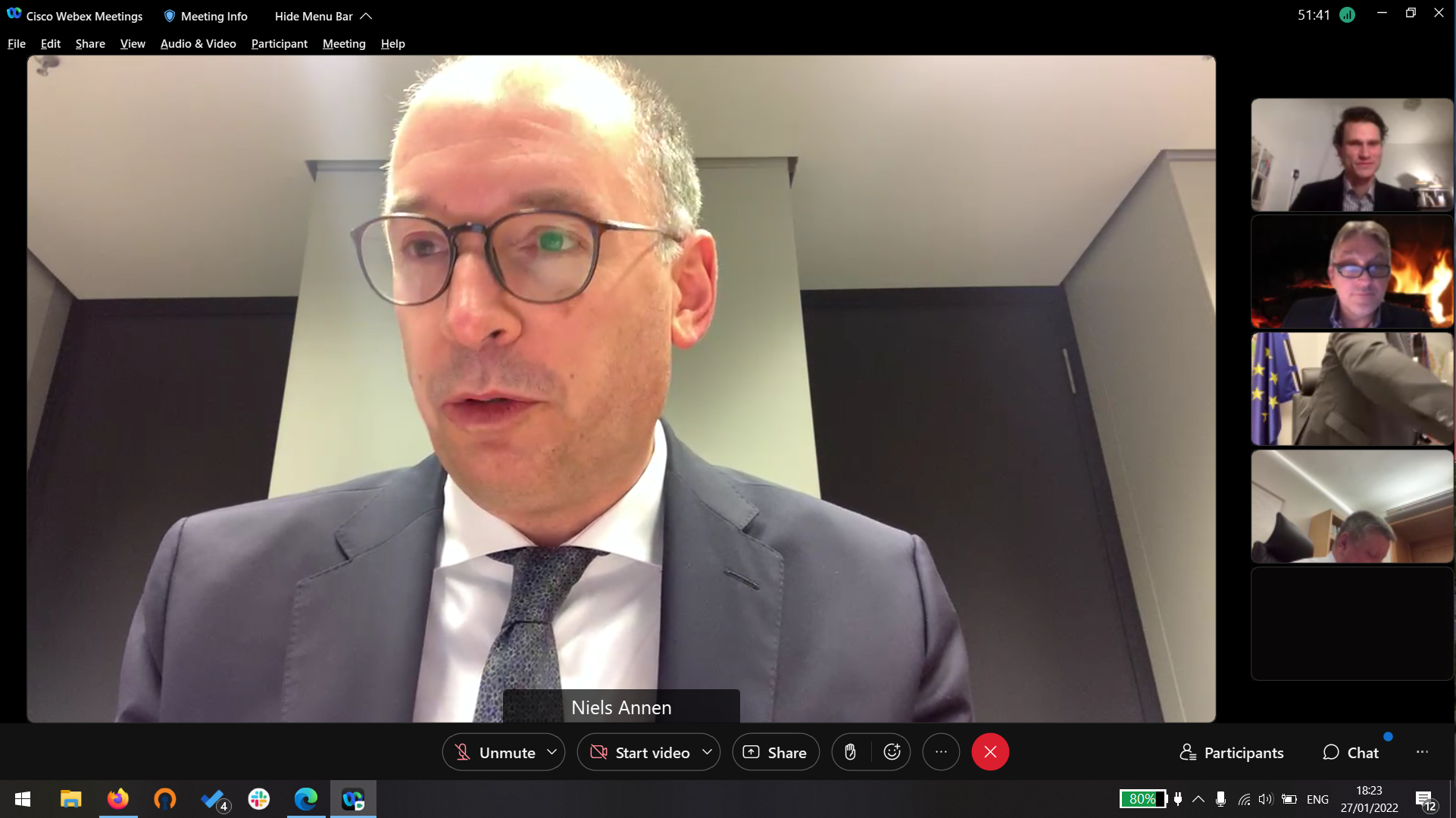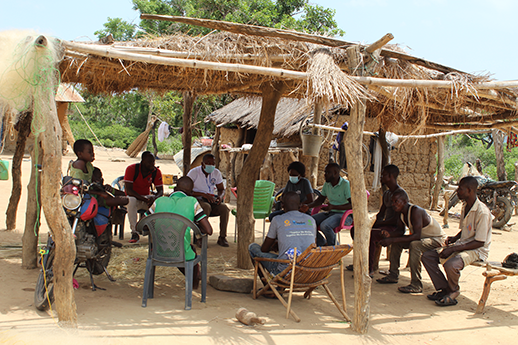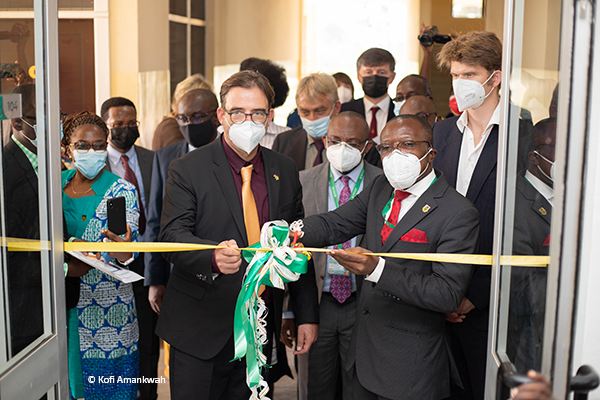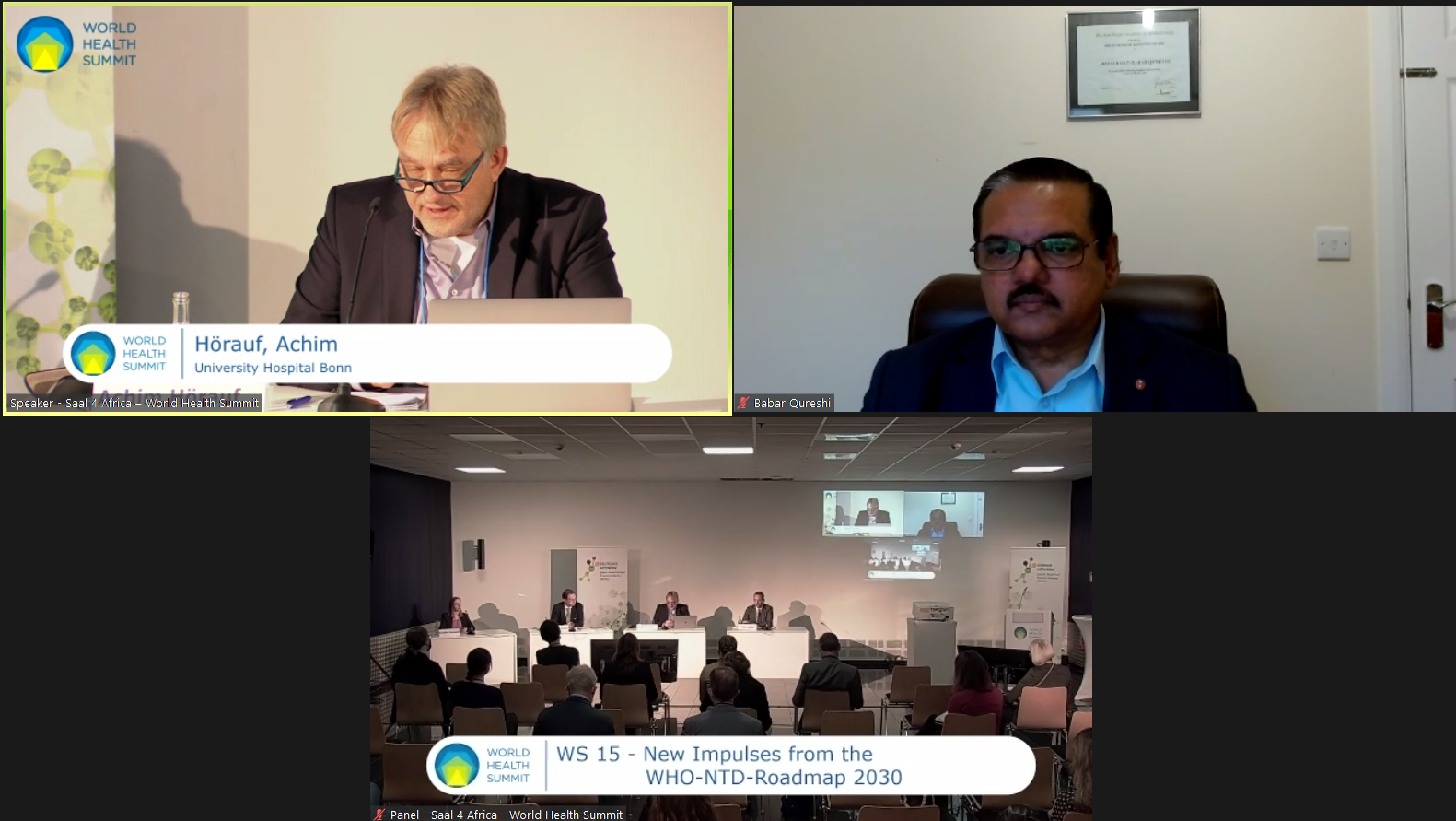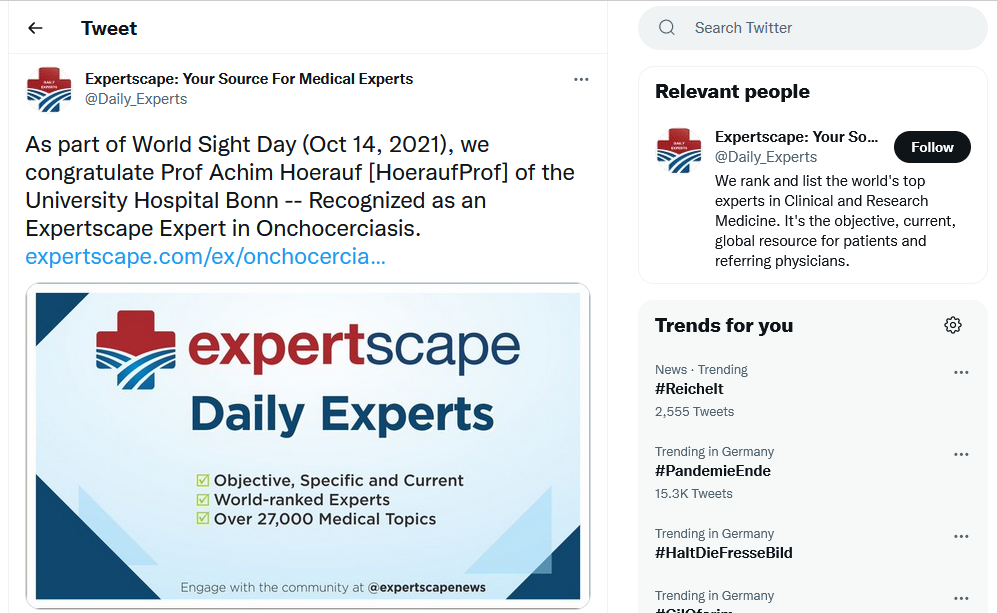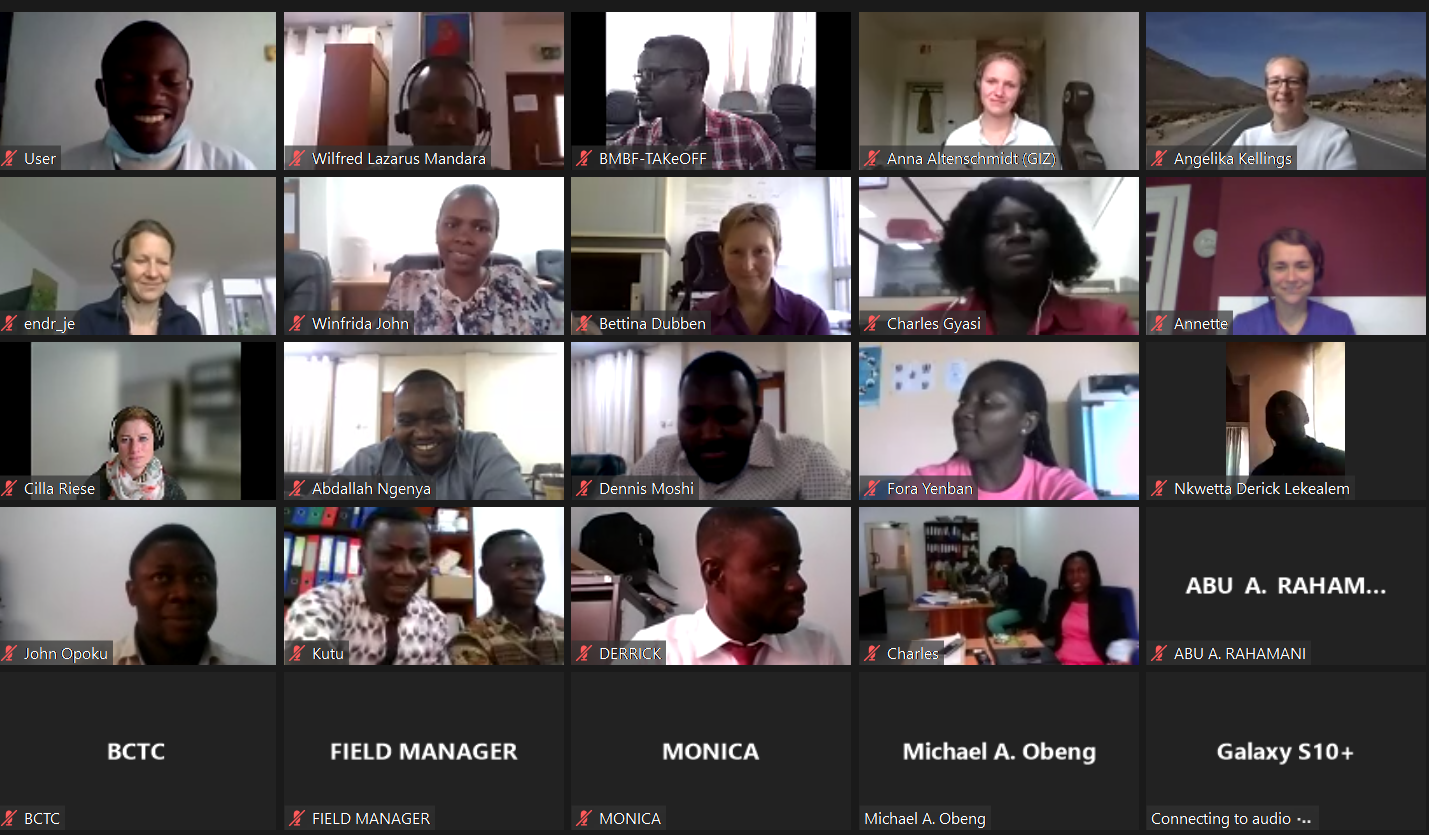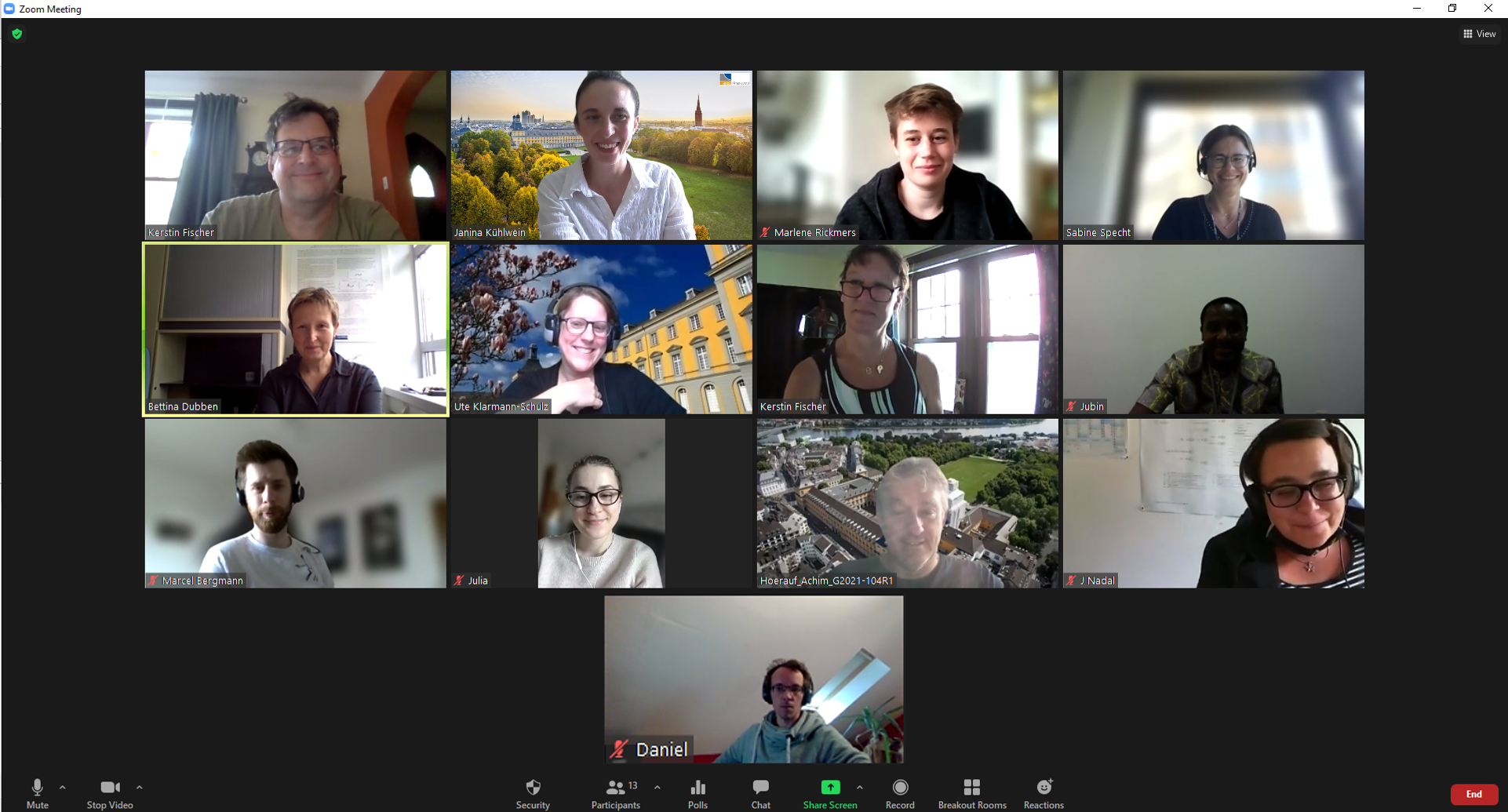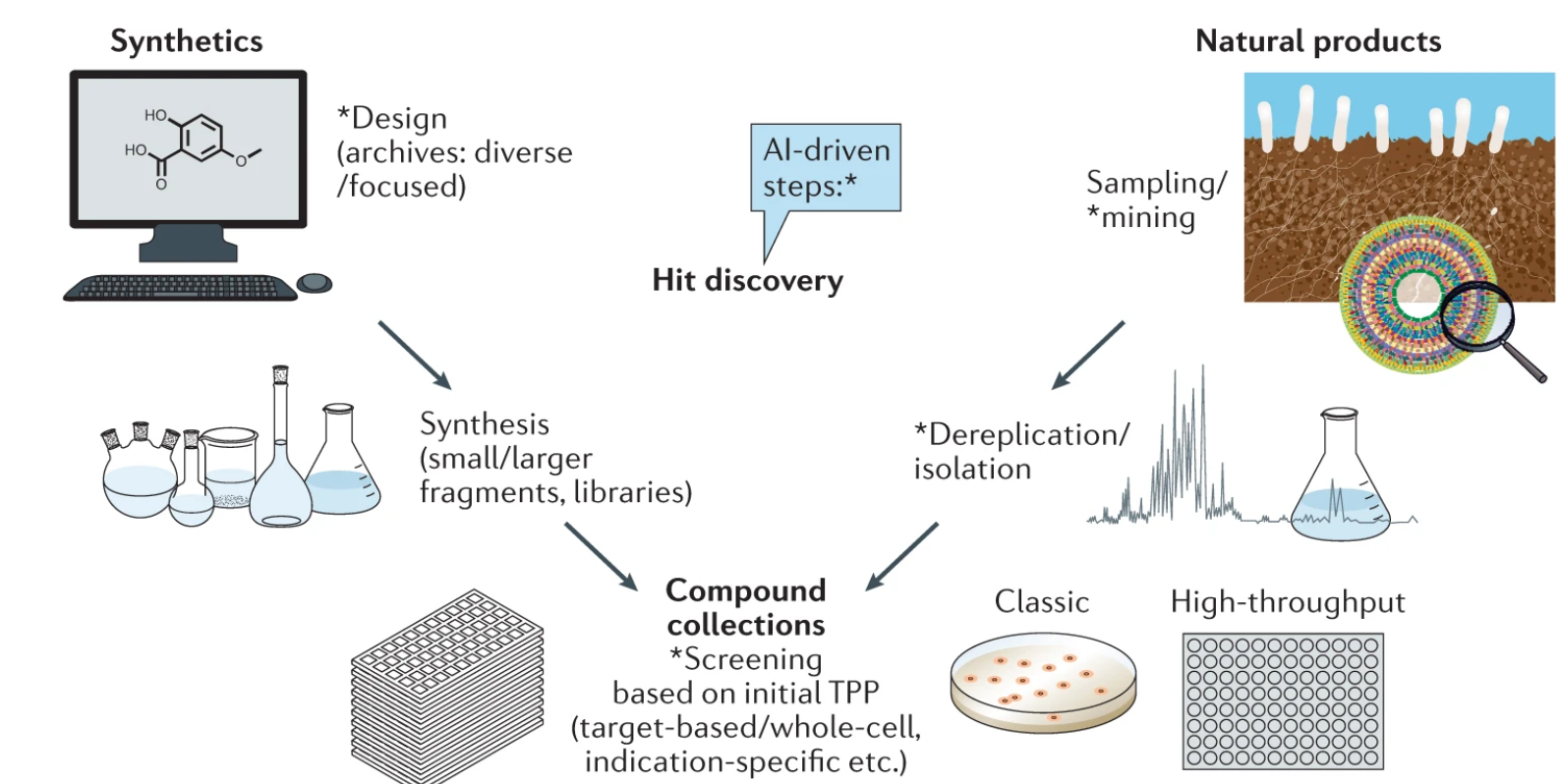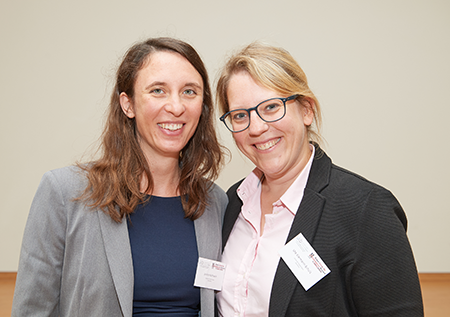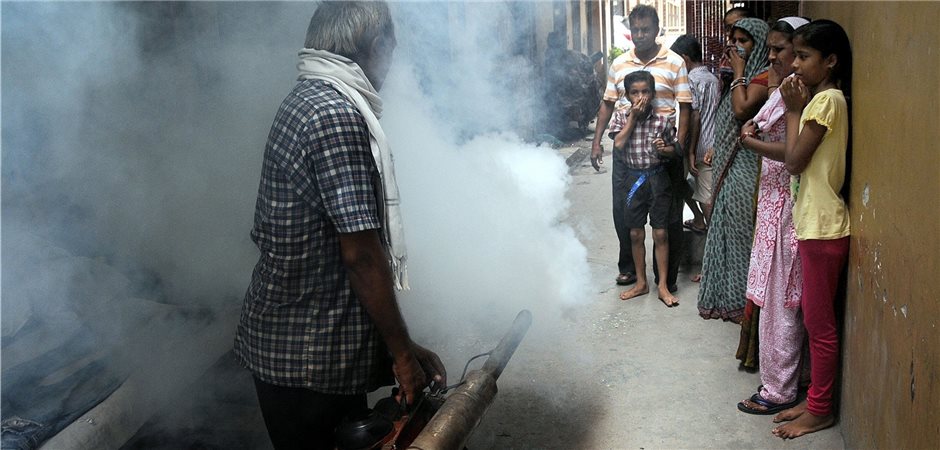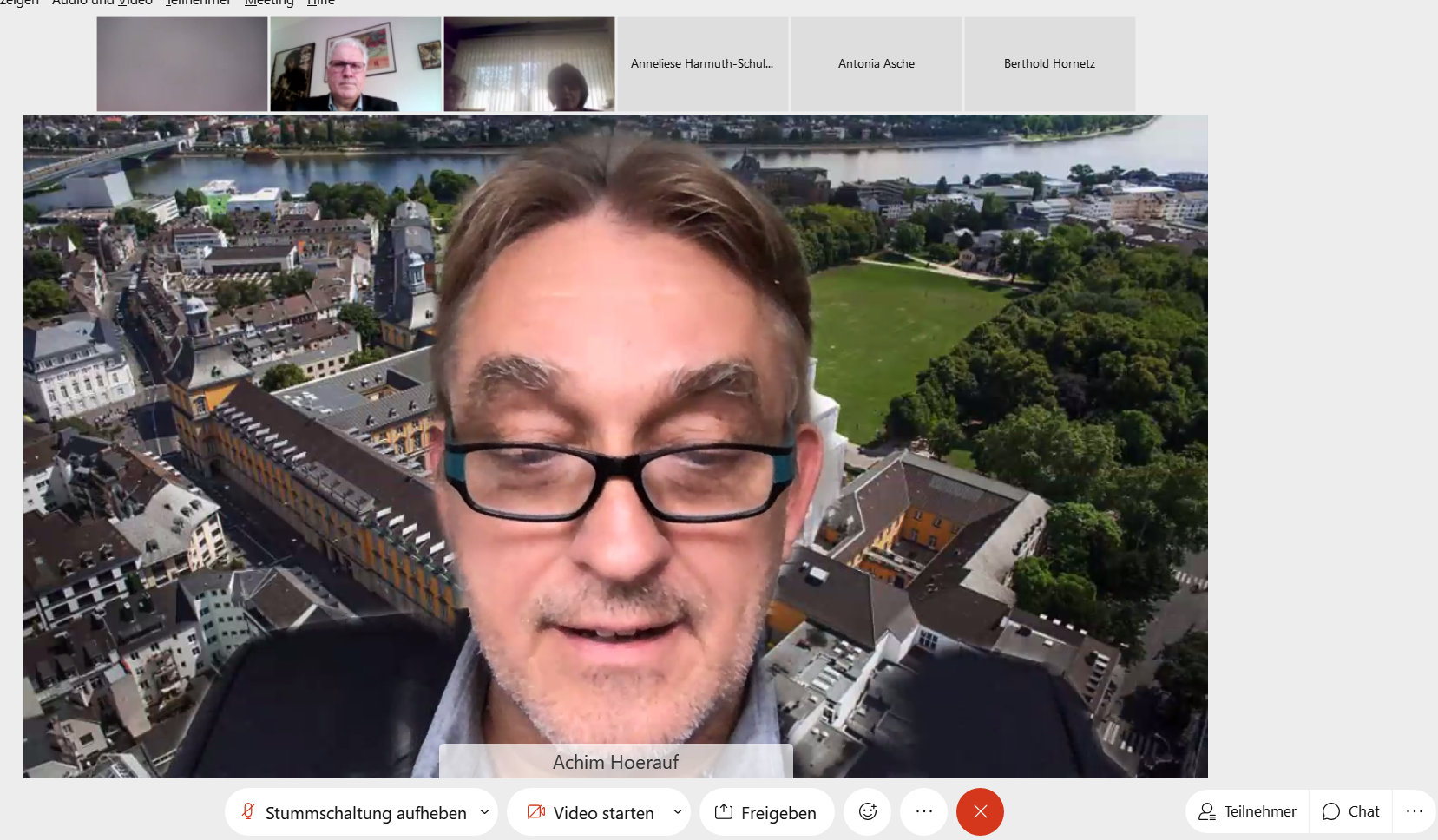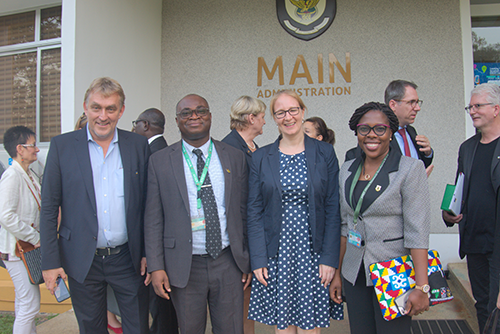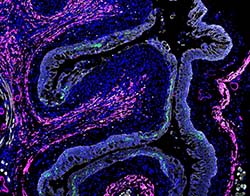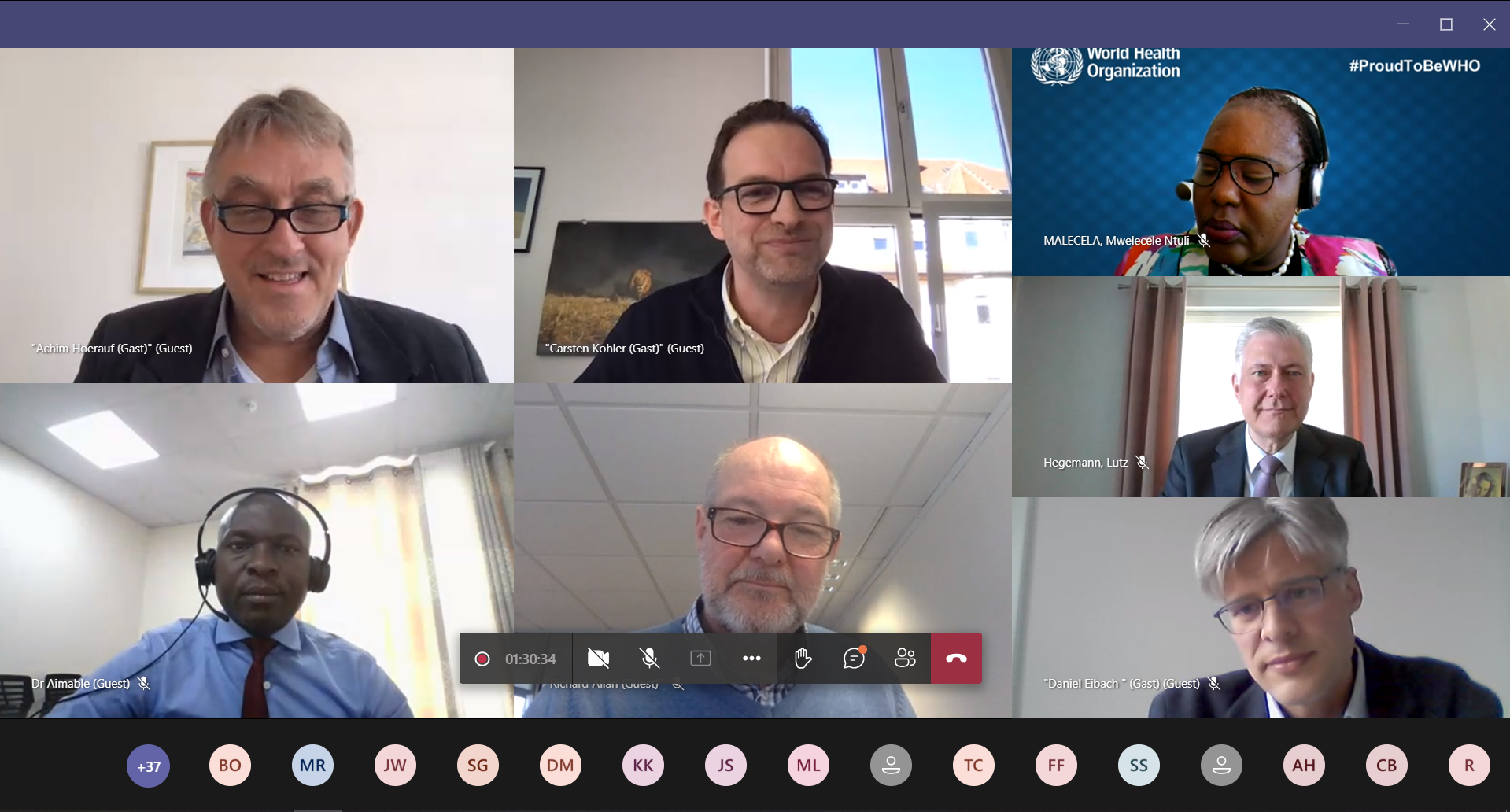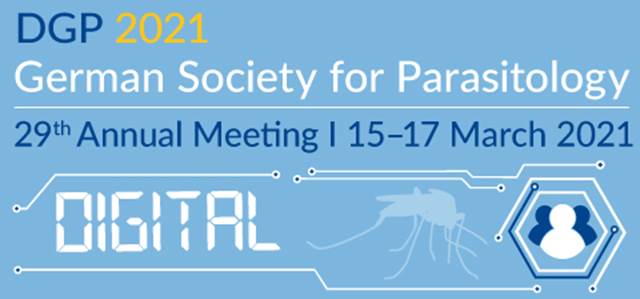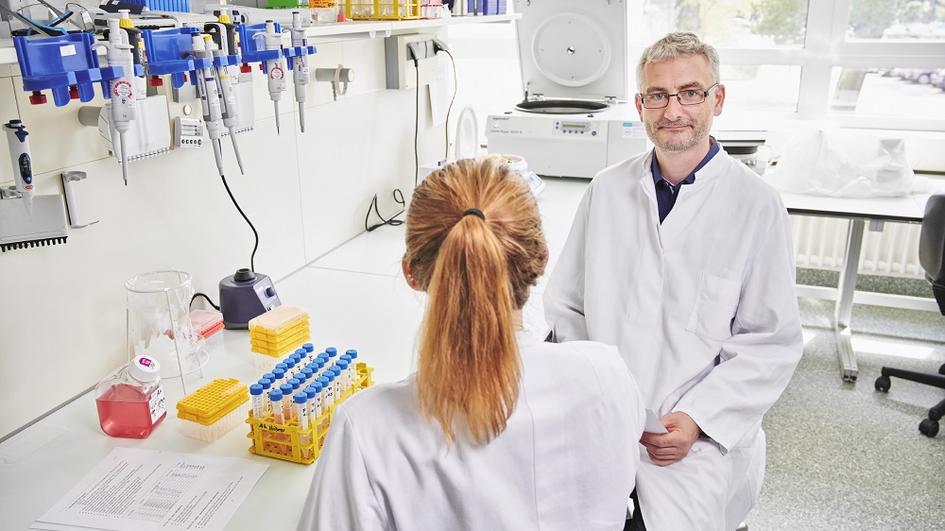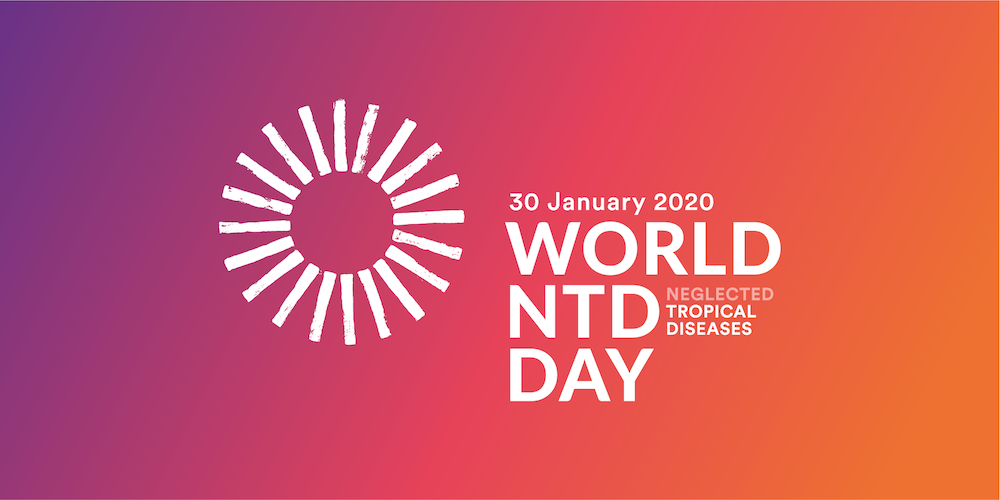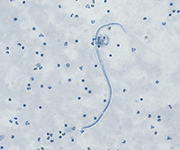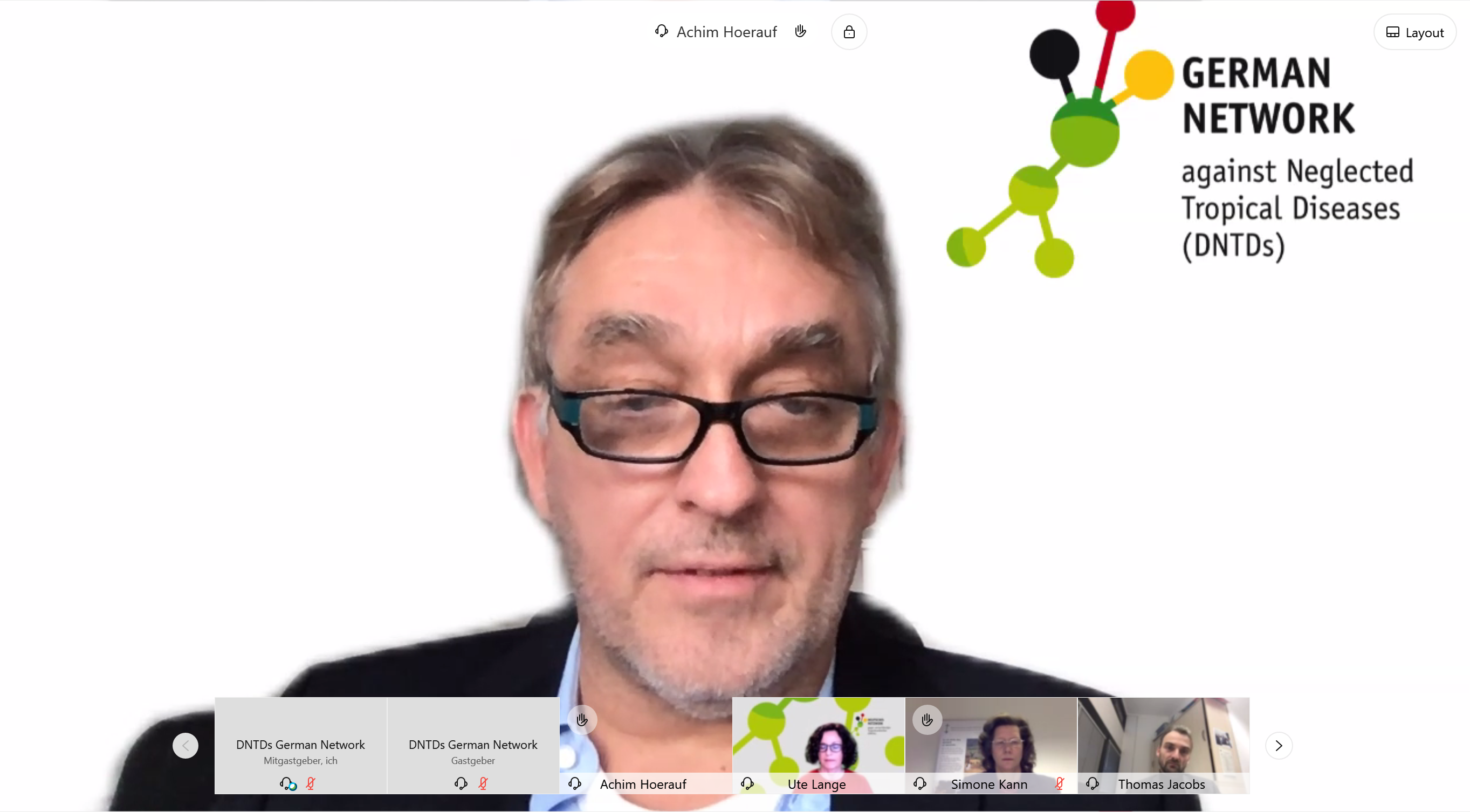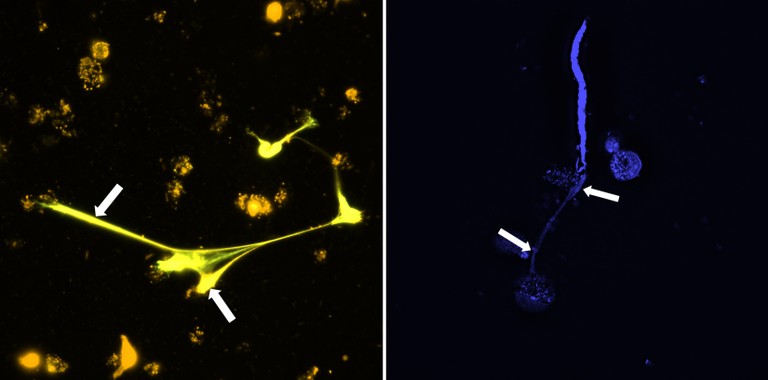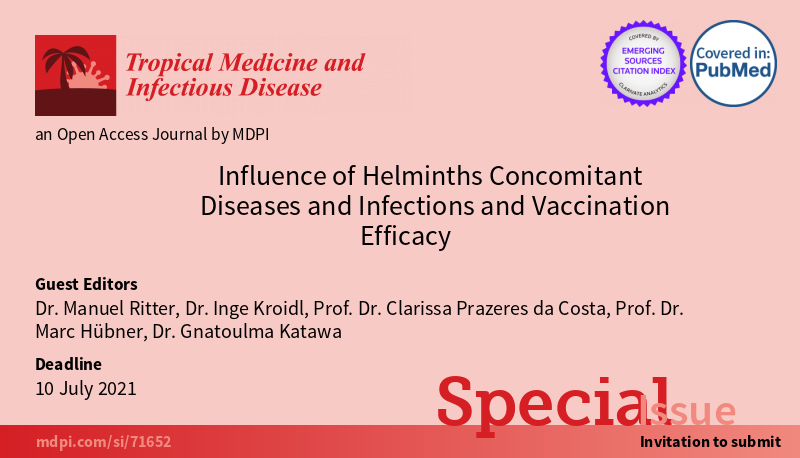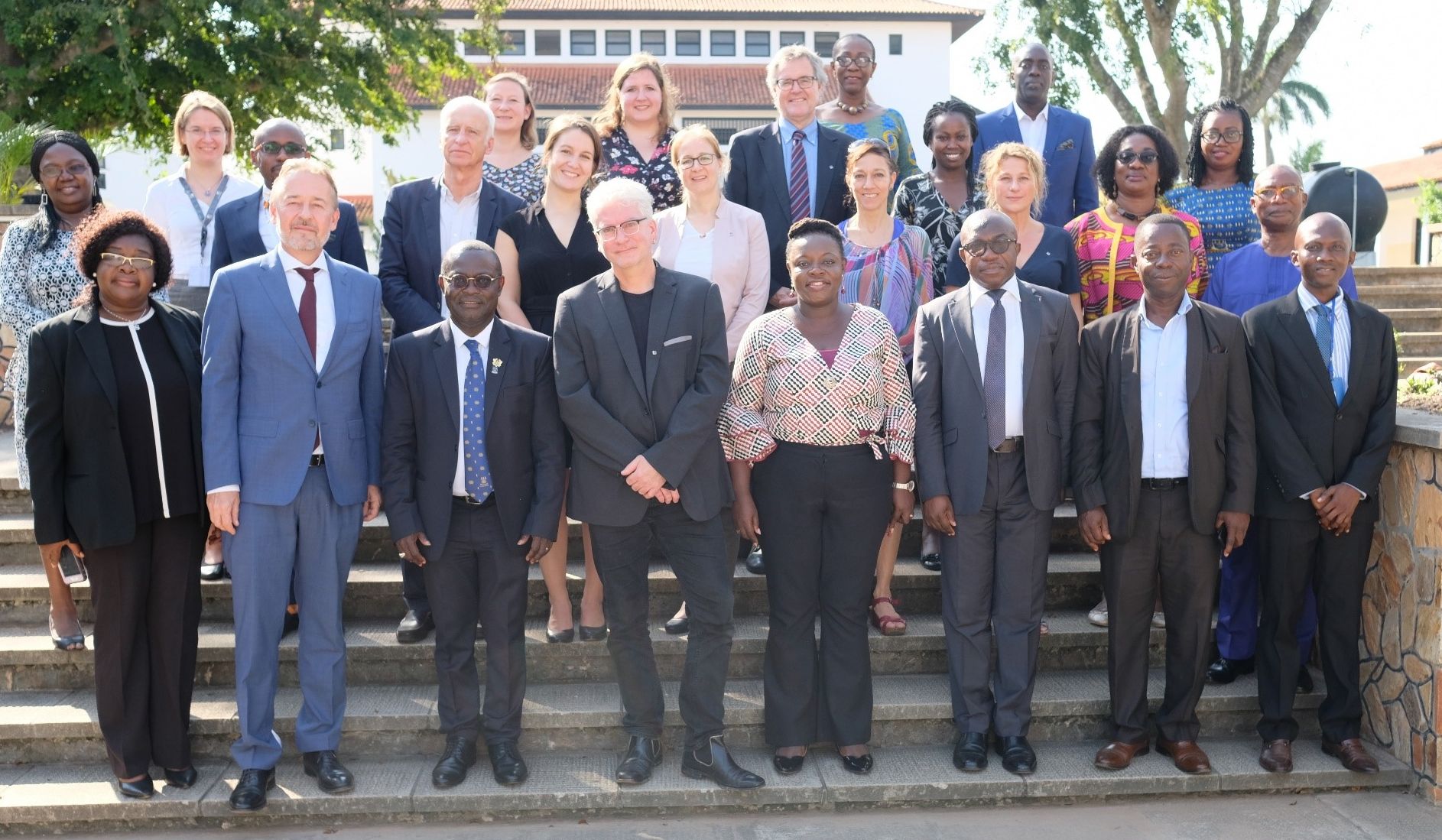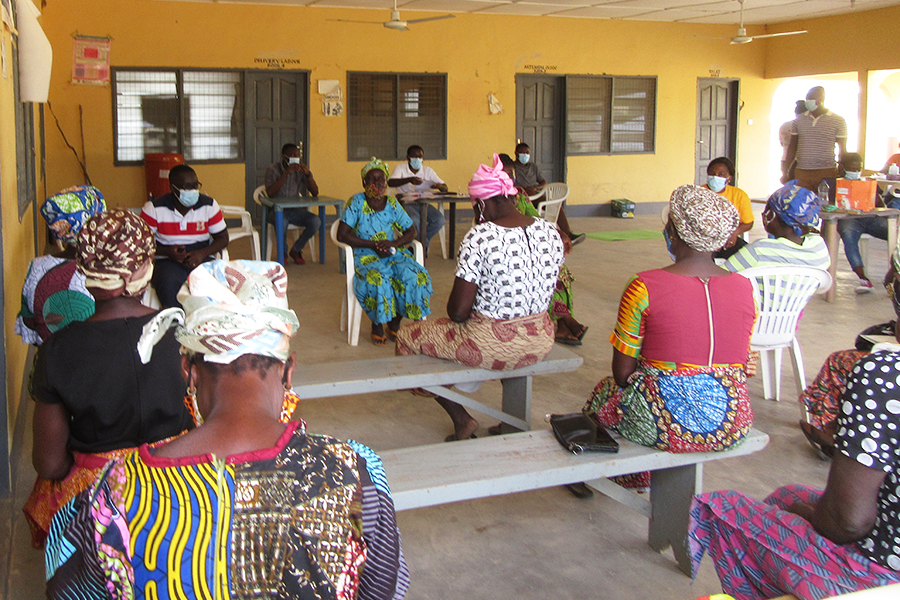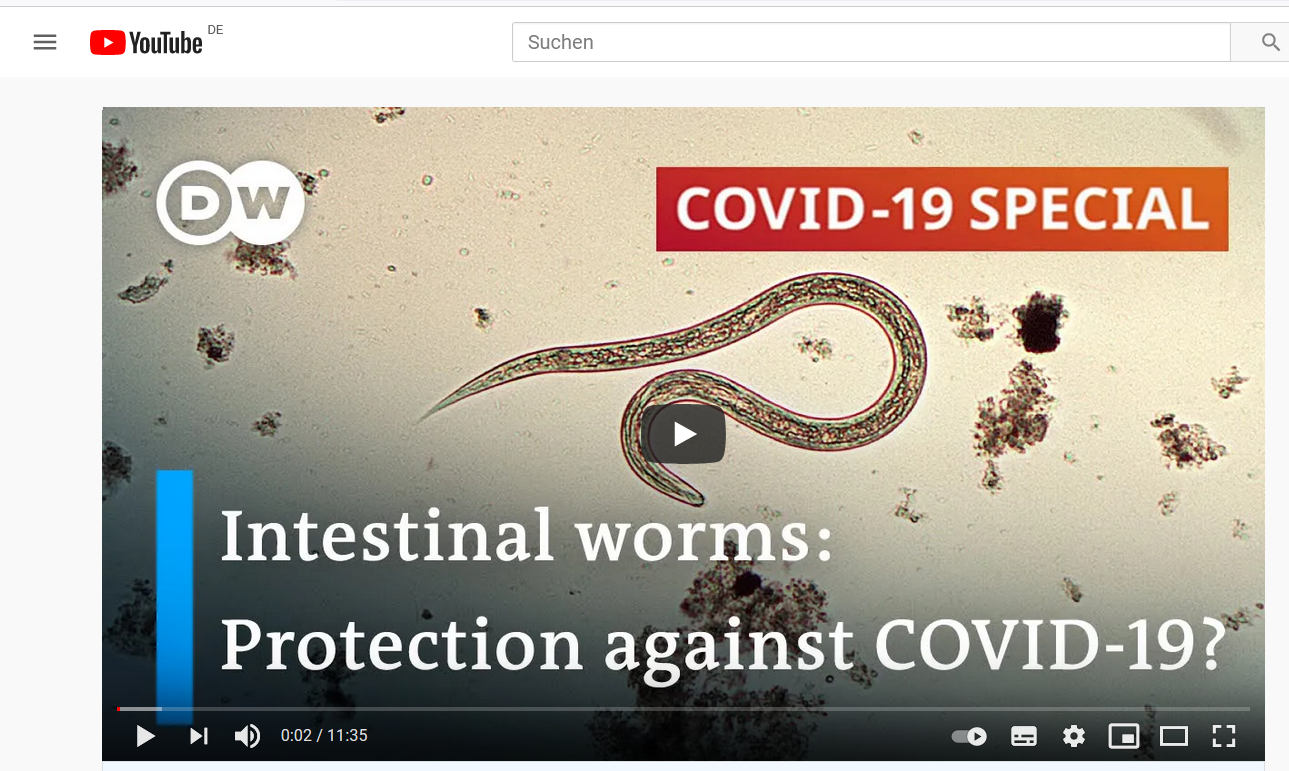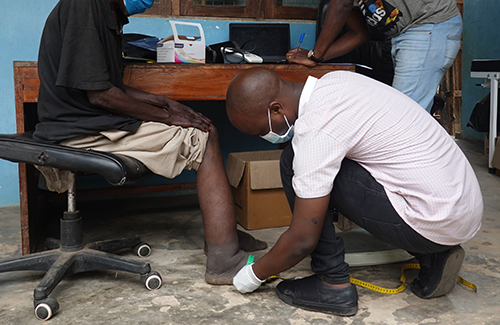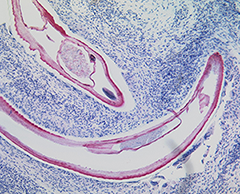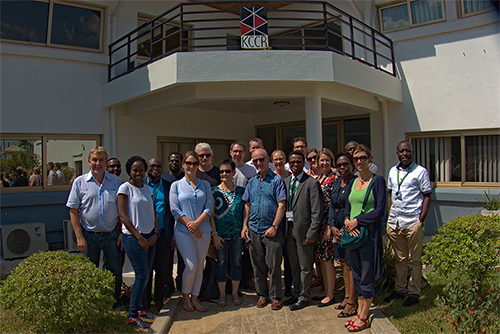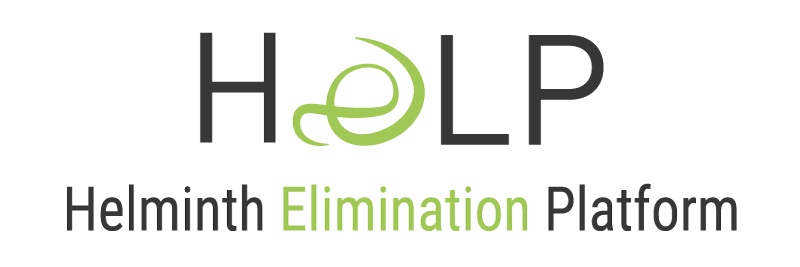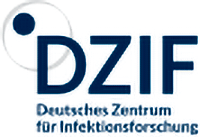News
Prof. Hörauf was a guest panelist at the "Europe 2024" conference in Berlin
The "Europe 2024" event - organized by Die Zeit, Handelsblatt, Tagesspiegel and WirtschaftsWoche - took place in Berlin from 19.04.-20.04.2024. Prominent guests such as Chancellor Scholz and Economics Minister Habeck took part in the discussions on European policy in the face of the Ukraine invasion and the second main topic "Health - how can the EU position itself better for the future"
Prof. Hörauf (Director of IMMIP) and Dr. Gitzinger (Bioversys) were invited as discussion partners to the masterclass "Europe as a space for innovation: Together against antimicrobial resistance". Moderated by Alexandra-Corinna Heeser, the discussion focused on the emergence of antimicrobial resistance (AMR), its impact on global healthcare and the problem of the lack of development of new antibiotics. Both participants made it clear that we will lose the fight against AMR, especially in Europe, if politicians do not improve the framework conditions for better remuneration of investments in new antibiotics and thus establish new pull mechanisms.
Link to the Pharmazeutische Zeitung report: https://www.pharmazeutische-zeitung.de/wie-koennen-mehr-antibiotika-entwickelt-werden-146361/
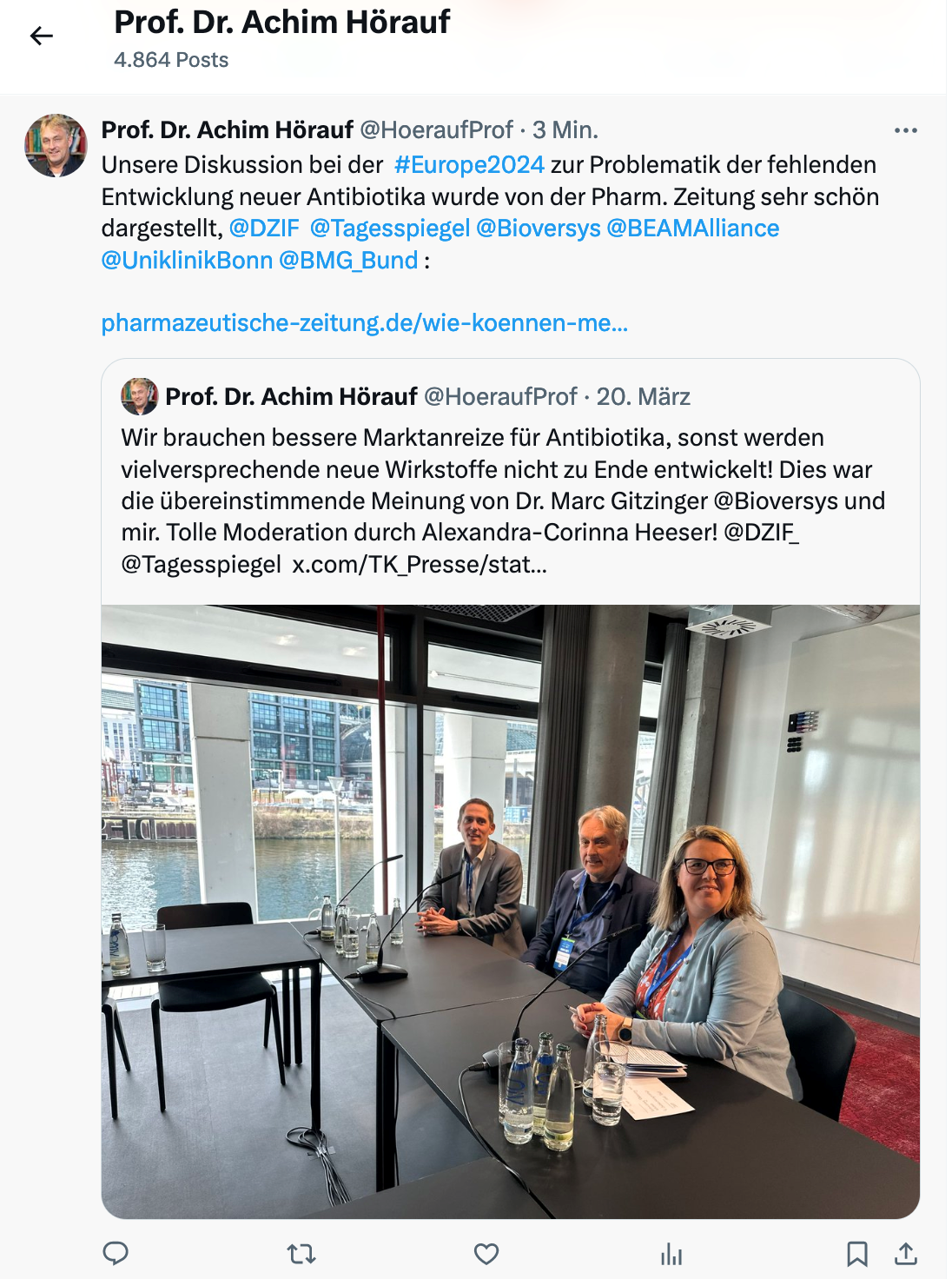
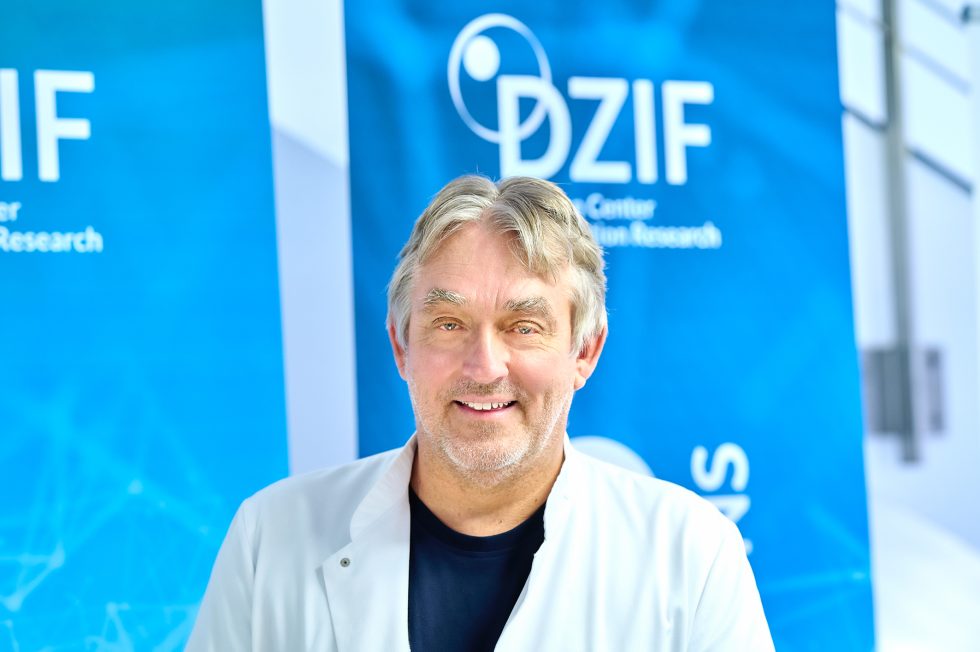
Prof. Hörauf's Interview with the German Foundation for World Population (DSW) on NTDs
January 30th is World NTD Day, the day of neglected tropical diseases.
How relevant is the neglect that gives the day its name today?
Achim Hörauf: In my view, this has become more topical again. NTDs have been and are being neglected again, especially due to the coronavirus pandemic. One example: due to the lockdown, local control in the communities, such as the distribution of medication, had been suspended. This then set us back two to four years, if a year had been suspended; and also results in patient fatigue with regard to treatment. In addition, the priorities in research have changed due to Corona, even though many millions of people worldwide live with disabilities and restrictions due to NTDs; and leprosy sufferers even suffer from mutilations. The WHO has just designated noma as the 21st NTD. This is a terrible disease of the oral cavity caused by malnutrition. NTDs are always the first to be neglected due to a lack of advocacy. After Corona, there was already significantly less funding from the USA, and the UK even pulled out completely. And in Germany, too, the BMZ (Federal Ministry for Economic Cooperation and Development) has had to accept significant restrictions...Continue reading
Neglected tropical diseases : Pathogens know no borders - Podcast on Spotify
Link : https://open.spotify.com/embed/episode/5vVb0M8g6Sw02TOzaTDQ73?utm_source=generator"
In conversation with Dr. Dr. Carsten Köhler, Director of the Competence Center for Tropical Medicine at the University of Tübingen, and Prof. Achim Hörauf, University of Bonn and spokesperson for the German Network against Neglected Tropical Diseases*
1.7 billion people worldwide are at risk from neglected tropical diseases (NTDs). And although one would expect NTDs to be found in faraway countries, the danger is getting closer and closer. Even in Europe, outside their actual areas of origin, isolated outbreaks of NTDs have recently been recorded.
Together with our two guest experts Dr. Dr. Carsten Köhler, Director of the Competence Center and Head of the Global Health Focus Group at the University of Tübingen, and Prof. Achim Hörauf, Director of the Institute of Medical Microbiology, Immunology and Parasitology at the University of Bonn and spokesperson for the German Network against Neglected Tropical Diseases, we shed light on the occasion of World Day against Neglected Tropical Diseases: What are NTDs and where are they found? Why does it affect me? How can the danger be countered in the future and how can I protect myself as an individual?
Partner of the episode is Takeda.
Fight Against American Trypanosomiasis
Chagas disease is estimated by the WHO to affect about 6-7 million people. Prof. Achim Hoerauf the Speaker of the German Network for Neglected Tropical Disease and Director IMMIP, was in Machareti, Bolivia to discuss potential collaborations in the fight against American trypanosomiasis.
The Search for New Treatment for River Blindness
The World Health Organization estimates that 1.15 million people have lost their vision due to river blindness, while 220 million require preventive therapy against onchocerciasis. For over 25 years, the Institute of Medical Microbiology Immunology and Parasitology, at the University Hospital Bonn and the Kumasi Centre for Collaborative Research in Tropical Medicine, in Kumasi Ghana have been conduction clinical trials in river blindness and lymphatic filariasis. Prof. Achim Hoerauf and his long-term research partner and friend Prof. Alexander Debrah filmed a short documentary on their work in Ghana. In addition to showing the work done in the field, positive feedback from the community members is also captured in the documentary.
Development of the antibiotic Corallopyronin A against filariasis
More than 72 million people in the tropics are infected with the nematodes Onchocerca volvulus, Wuchereria bancrofti and Brugia malayi. Infections with these worms can lead to severe dermatitis and blindness or elephantiasis - a disease in which the legs in particular become extremely enlarged. In dogs, a similar parasite can cause life-threatening canine heartworm disease. With the natural compound Corallopyronin A, Prof. Achim Hörauf and his team at the Institute for Medical Microbiology, Immunology and Parasitology (IMMIP) Continue reading...
Code for a Cure: Combating River Blindness with Data & AI
A team of experts at Capgemini, in collaboration with University Hospital Bonn and Amazon Web Services, has developed an artificial intelligence (AI) model that will accelerate the speed of clinical trials aiming to establish new treatments for River Blindness, a neglected tropical disease which affects over 20 million people globally. Currently, the specialist work of clinical trials can only be carried out manually by a handful of global experts, so the winning model could save years of work and speed up the development of new treatments.Continue reading
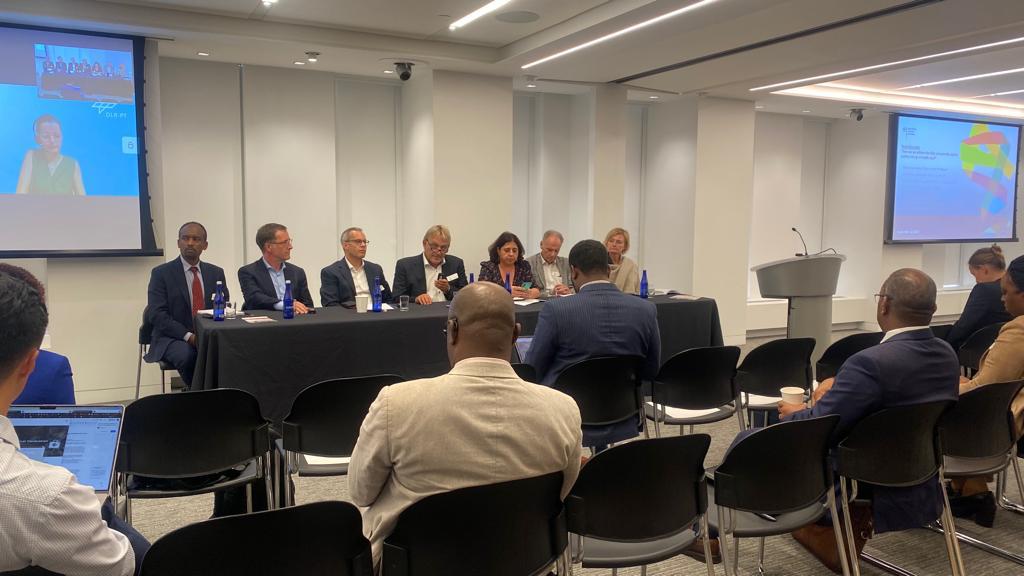
Prof. Achim Hoerauf was part of the expert pannel at the Science Summit at the UN General Assembly in New York
Prof. Dr. med. Achim Hoerauf, Director IMMIP, was selected to speak at the 9th Science Summit, on the occasion of the 78th UN General Assembly in New York City.
The goal of the summit was to discuss the current critical scientific challenges affecting our planet. The central theme chosen for this year's summit was "The Role of Science in Achieving the United Nations Sustainable Development Goals (SDGs)."...Continue reading
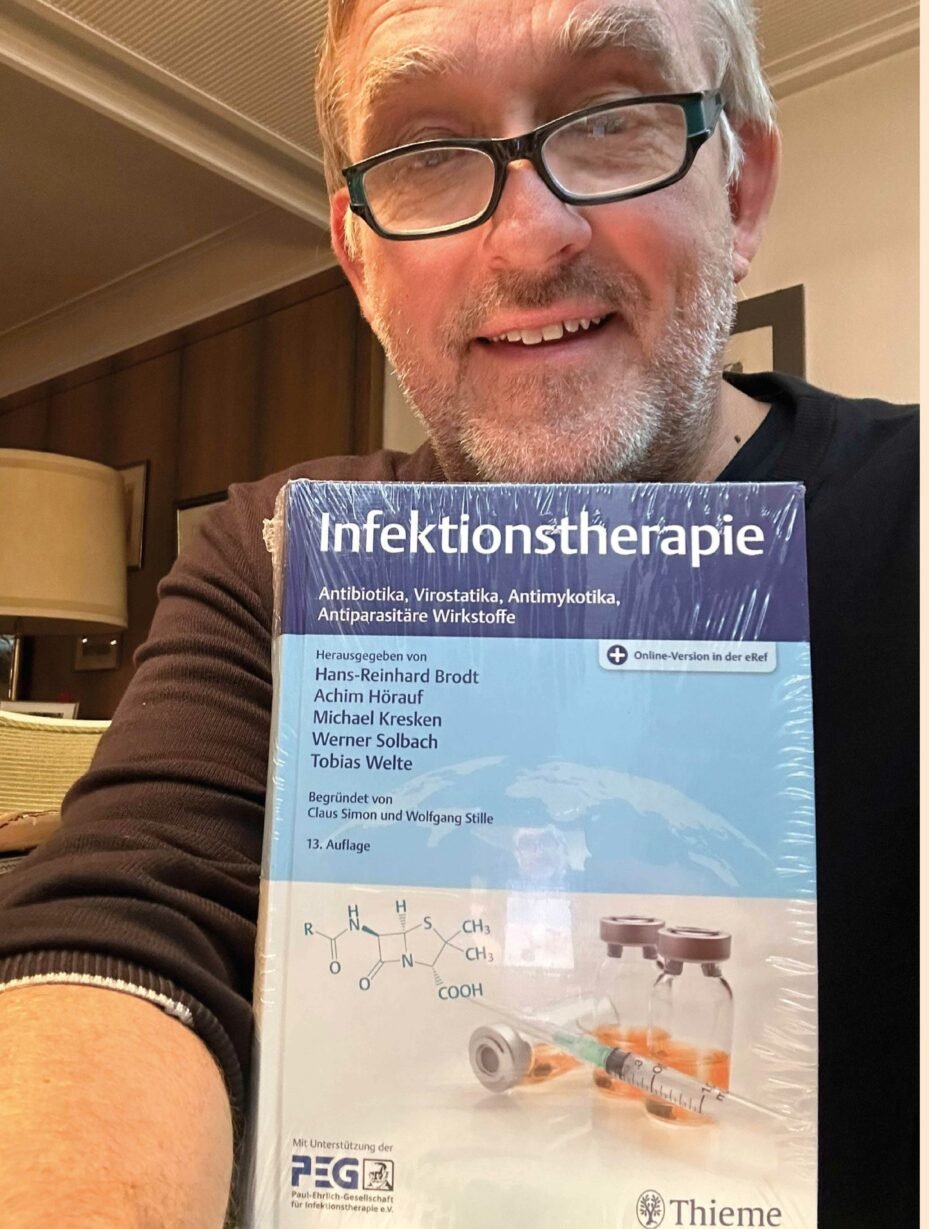
The 13th new edition of the standard work "Infection Therapy" - edited by Prof. Dr. Achim Hörauf and others in our UKB Newsletter :
